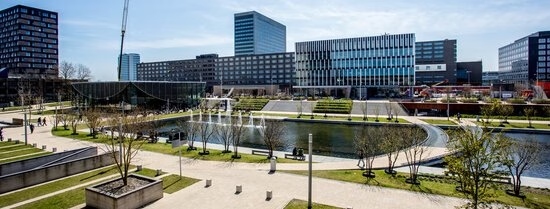The study programme in a nutshell
The MA programme “Societies in Crisis: Humanitarian Action and Policy Responses” is a one-year programme that prepares students to contribute to responding to complex societal crises, including climate change, natural hazards, war, or mass displacement. The course will empower you to take a holistic approach to humanitarian crises, promoting response and recovery efforts that prioritise sustainability and justice.
Mode of Education
Each core course consists of lectures and workshop-like sessions that will both explain and explore key theoretical and empirical insights, whilst providing ample space for discussion and dialogue. Assessment may include exams, papers, (poster) presentations, and other (group) assignments. All will be grounded in the real-world examples that the teaching team has worked in and researched across their careers!
The Programme
The MSc programme consists of both theoretical and skill-based components, arranged across four blocks.
Block 1 will introduce you to the main political currents, actors, and discourses related to societies that experience a crisis, as well as how humanitarian actors manage crises (with a special focus on IDPs and refugees). You will also be introduced to the political economy of crisis, and the internationally used nexus between humanitarian, development, and peacebuilding work.
Block 2 will delve into some specific themes and currents, including the mechanics of a disaster, the influences of climate change, and risk reduction and creation. You’ll also jump into the most relevant discussions around International Humanitarian Law, Accountability, and Advocacy. You’ll also learn to take a systems approach to a humanitarian crisis.
Block 3 will focus on professional development, with problem-solving and skill-building simulations. You’ll also have the chance to broaden your knowledge with an elective module from the Erasmus School of Social and Behavioural Sciences, and/or the International Institute of Social Studies. You will begin preparing for your final research project (thesis) with research design and methods training.
During Block 4, you will devise and carry out a research project as the final ‘crown jewel’ piece in your journey! You’ll be supervised by one of the course instructors, and you will be able to focus on a subject that is personal, contextual, and relevant to your own life and (future) career.
